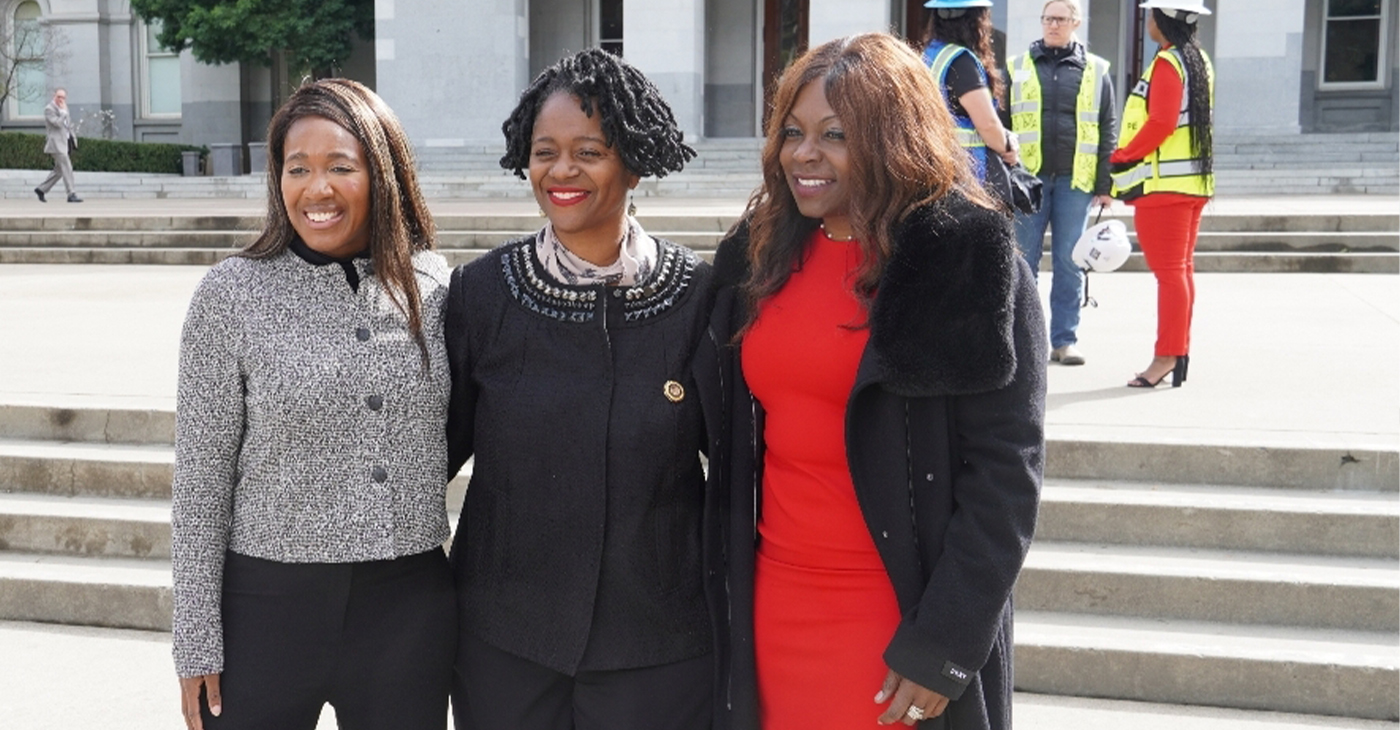National
Group: Officers Who Beat Black Suspect Should Be Charged

Ron Scott speaks at rally in front of the Grosse Pointe Park city offices in Grosse Pointe Park, Mich. on Wednesday, Jan. 14, 2015. The protesters want the prosecution of two officers videotaped during the beating of a suspected carjacker in a Detroit neighborhood. (AP Photo/Detroit News, David Coates)
Corey Williams, ASSOCIATED PRESS
DETROIT (AP) — Protesters on Wednesday called for criminal charges to be brought against two police officers who appear to be white who were caught on video beating and kicking a black carjacking suspect during an arrest.
The video of Monday’s arrest, which was captured by a Detroit resident and posted on Facebook, shows the two officers taking turns kneeling forcefully on the back of the suspect, who was lying face-down on a snowy sidewalk, and beating and kicking him. They beat the 51-year-old suspect before and after he was handcuffed.
“It was despicable. It was horrible and it was barbaric, and it certainly was not professional,” Ron Scott, the director of The Detroit Coalition Against Police Brutality, which organized the small protest, told The Associated Press. “This was especially deplorable given the circumstances we are facing in the nation at this point with Michael Brown being shot and police brutality.”
The killings of Brown in Ferguson, Missouri, and Eric Garner in New York City last summer touched off protests and a national debate over the treatment of black Americans by the police. Both Brown and Garner were black and unarmed, and the officers who killed them were white.
The officers involved in Monday’s arrest on Detroit’s northwest side, who appear in the video to be white, have not been publicly identified. They are members of an auto theft task force that includes police from Grosse Pointe Park, Harper Woods and Highland Park. They were tracking a vehicle carjacked earlier in the day, according to a Grosse Pointe Park police department news release.
“During the carjacking, the armed subject pointed a gun at a mother and her two children and ordered them out of the vehicle,” the department said. “He threatened to shoot them if they failed to comply.”
The officers followed the vehicle and chased the man a quarter-mile after he got out of the car in Detroit. According to police, the suspect resisted arrest and an attempt to subdue him with a stun gun failed because he was wearing heavy clothing.
“The subject continued to reach for the area of his waistband and refused all orders to show his hands,” the department said. “Fearing for their safety and those in the immediate area, an officer delivered a kick to the thigh area of the subject thus allowing the other officers the ability to arrest the subject. Located in his waistband was a loaded semi-automatic handgun.”
The news release doesn’t mention that the suspect was also beaten after he was handcuffed.
The task force presented a warrant Wednesday to the Wayne County prosecutor’s office asking it to press charges against the carjacking suspect.
The Associated Press isn’t naming him because he hadn’t been charged in the alleged carjacking as of late Wednesday afternoon. Chris Gautz, a spokesman for the state Department of Corrections, said the man could be charged with violating parole for a 2004 armed robbery conviction. The man was released from prison in 2013 and hasn’t been in contact with parole officials since last April.
The state police will investigate the officers’ actions. The Associated Press left messages Wednesday with the Grosse Pointe Park police department and an attorney for the city of Highland Park to determine whether the two officers in the video will remain on duty during the state police investigation.
The Coalition for Justice and Fairness to Reform Law Enforcement, which counts the Detroit branch of the National Association for the Advancement of Colored People and the American Civil Liberties Union of Michigan among its members, issued a statement denouncing the beating.
“Certainly, police officers have the right to apprehend, secure, and protect themselves and the public from suspects involved in criminal activities,” the group said. “However, it is most disturbing to see an individual handcuffed on the ground while a police officer sits on his back, who after being apprehended, is still punched in the head and kicked by an officer on the scene.”
Copyright 2015 The Associated Press. All rights reserved. This material may not be published, broadcast, rewritten or redistributed.
####
Activism
Oakland Post: Week of March 28 – April 1, 2025
The printed Weekly Edition of the Oakland Post: Week of March 28 – April 1, 2025

To enlarge your view of this issue, use the slider, magnifying glass icon or full page icon in the lower right corner of the browser window.
Activism
Sen. Lola Smallwood-Cuevas Honors California Women in Construction with State Proclamation, Policy Ideas
“Women play an important role in building our communities, yet they remain vastly underrepresented in the construction industry,” Smallwood-Cuevas stated. “This resolution not only recognizes their incredible contributions but also the need to break barriers — like gender discrimination.

By Antonio Ray Harvey, California Black Media
To honor Women in Construction Week, Sen. Lola Smallwood-Cuevas (D-Los Angeles), a member of the California Legislative Black Caucus (CLBC), introduced Senate Concurrent Resolution (SCR) 30 in the State Legislature on March 6. This resolution pays tribute to women and highlights their contributions to the building industry.
The measure designates March 2, 2025, to March 8, 2025, as Women in Construction Week in California. It passed 34-0 on the Senate floor.
“Women play an important role in building our communities, yet they remain vastly underrepresented in the construction industry,” Smallwood-Cuevas stated. “This resolution not only recognizes their incredible contributions but also the need to break barriers — like gender discrimination.
Authored by Assemblymember Liz Ortega (D-San Leandro), another bill, Assembly Concurrent Resolution (ACR) 28, also recognized women in the construction industry.
The resolution advanced out of the Assembly Committee on Rules with a 10-0 vote.
The weeklong event coincides with the National Association of Women In Construction (NAWIC) celebration that started in 1998 and has grown and expanded every year since.
The same week in front of the State Capitol, Smallwood, Lt. Gov. Eleni Kounalakis, Assemblymember Josh Hoover (R-Folsom), and Assemblymember Maggie Krell (D-Sacramento), attended a brunch organized by a local chapter of NAWIC.
Two of the guest speakers were Dr. Giovanna Brasfield, CEO of Los Angeles-based Brasfield and Associates, and Jennifer Todd, President and Founder of LMS General Contractors.
Todd is the youngest Black woman to receive a California’s Contractors State License Board (A) General Engineering license. An advocate for women of different backgrounds, Todd she said she has been a woman in construction for the last 16 years despite going through some trying times.
A graduate of Arizona State University’s’ Sandra Day O’Connor College of Law, in 2009 Todd created an apprenticeship training program, A Greener Tomorrow, designed toward the advancement of unemployed and underemployed people of color.
“I always say, ‘I love an industry that doesn’t love me back,’” Todd said. “Being young, female and minority, I am often in spaces where people don’t look like me, they don’t reflect my values, they don’t reflect my experiences, and I so persevere in spite of it all.”
According to the U.S. Bureau of Labor Statistics, only 11.2% of the construction workforce across the country are female. Overall, 87.3% of the female construction workers are White, 35.1% are Latinas, 2.1% are Asians, and 6.5% are Black women, the report reveals.
The National Association of Home Builders reported that as of 2022, the states with the largest number of women working in construction were Texas (137,000), California (135,000) and Florida (119,000). The three states alone represent 30% of all women employed in the industry.
Sen. Susan Rubio (D-Baldwin Park) and the California Legislative Women’s Caucus supported Smallwood-Cuevas’ SCR 30 and requested that more energy be poured into bringing awareness to the severe gender gap in the construction field.
“The construction trade are a proven path to a solid career. and we have an ongoing shortage, and this is a time for us to do better breaking down the barriers to help the people get into this sector,” Rubio said.
Activism
Report Offers Policies, Ideas to Improve the Workplace Experiences of Black Women in California
The “Invisible Labor, Visible Struggles: The Intersection of Race, Gender, and Workplace Equity for Black Women in California” report by the California Black Women’s Collective Empowerment Institute (CBWCEI), unveiled the findings of a December 2024 survey of 452 employed Black women across the Golden State. Three-fifths of the participants said they experienced racism or discrimination last year and 57% of the unfair treatment was related to incidents at work.

By McKenzie Jackson, California Black Media
Backed by data, a report released last month details the numerous hurdles Black women in the Golden State must overcome to effectively contribute and succeed in the workplace.
The “Invisible Labor, Visible Struggles: The Intersection of Race, Gender, and Workplace Equity for Black Women in California” report by the California Black Women’s Collective Empowerment Institute (CBWCEI), unveiled the findings of a December 2024 survey of 452 employed Black women across the Golden State. Three-fifths of the participants said they experienced racism or discrimination last year and 57% of the unfair treatment was related to incidents at work.
CBWCEI President and CEO Kellie Todd Griffin said Black women have been the backbone of communities, industries, and movements but are still overlooked, underpaid, and undervalued at work.
“The data is clear,” she explained. “Systemic racism and sexism are not just historical injustices. They are active forces shaping the workplace experiences of Black women today. This report is a call to action. it demands intentional polices, corporate accountability, and systemic changes.”
The 16-page study, conducted by the public opinion research and strategic consulting firm EVITARUS, showcases the lived workplace experiences of Black women, many who say they are stuck in the crosshairs of discrimination based on gender and race which hinders their work opportunities, advancements, and aspirations, according to the report’s authors, Todd Griffin and CBWCEI researcher Dr. Sharon Uche.
“We wanted to look at how Black women are experiencing the workplace where there are systematic barriers,” Todd Griffin told the media during a press conference co-hosted by Ethnic Media Services and California Black Media. “This report is focused on the invisible labor struggles of Black women throughout California.”
The aspects of the workplace most important to Black women, according to those surveyed, are salary or wage, benefits, and job security.
However, only 21% of the survey’s respondents felt they had strong chances for career advancement into the executive or senior leadership ranks in California’s job market; 49% felt passed over, excluded from, or marginalized at work; and 48% felt their accomplishments at work were undervalued. Thirty-eight percent said they had been thought of as the stereotypical “angry Black woman” at work, and 42% said workplace racism or discrimination effected their physical or mental health.
“These sentiments play a factor in contributing to a workplace that is unsafe and not equitable for Black women in California,” the report reads.
Most Black women said providing for their families and personal fulfillment motivated them to show up to work daily, while 38% said they were dissatisfied in their current job with salary, supervisors, and work environment being the top sources of their discontent.
When asked if they agree or disagree with a statement about their workplace 58% of Black women said they feel supported at work, while 52% said their contributions are acknowledged. Forty-nine percent said they felt empowered.
Uche said Black women are paid $54,000 annually on average — including Black single mothers, who averaged $50,000 — while White men earn an average of $90,000 each year.
“More than half of Black families in California are led by single Black women,” said Uche, who added that the pay gap between Black women and White men isn’t forecasted to close until 2121.
-

 #NNPA BlackPress4 weeks ago
#NNPA BlackPress4 weeks agoTarget Takes a Hit: $12.4 Billion Wiped Out as Boycotts Grow
-

 Activism3 weeks ago
Activism3 weeks agoUndocumented Workers Are Struggling to Feed Themselves. Slashed Budgets and New Immigration Policies Bring Fresh Challenges
-

 #NNPA BlackPress4 weeks ago
#NNPA BlackPress4 weeks agoBREAKING Groundbreaking Singer Angie Stone Dies in Car Accident at 63
-

 Activism4 weeks ago
Activism4 weeks agoOakland Post: Week of February 26 – March 4, 2025
-

 #NNPA BlackPress4 weeks ago
#NNPA BlackPress4 weeks agoNAACP Legend and Freedom Fighter Hazel Dukes Passes
-

 Arts and Culture4 weeks ago
Arts and Culture4 weeks agoBeverly Lorraine Greene: A Pioneering Architect and Symbol of Possibility and Progress
-

 #NNPA BlackPress4 weeks ago
#NNPA BlackPress4 weeks agoTrump Kicks the Ukrainian President Out of the White House
-

 #NNPA BlackPress4 weeks ago
#NNPA BlackPress4 weeks agoApple Shareholders Reject Effort to Dismantle DEI Initiatives, Approve $500 Billion U.S. Investment Plan
























































